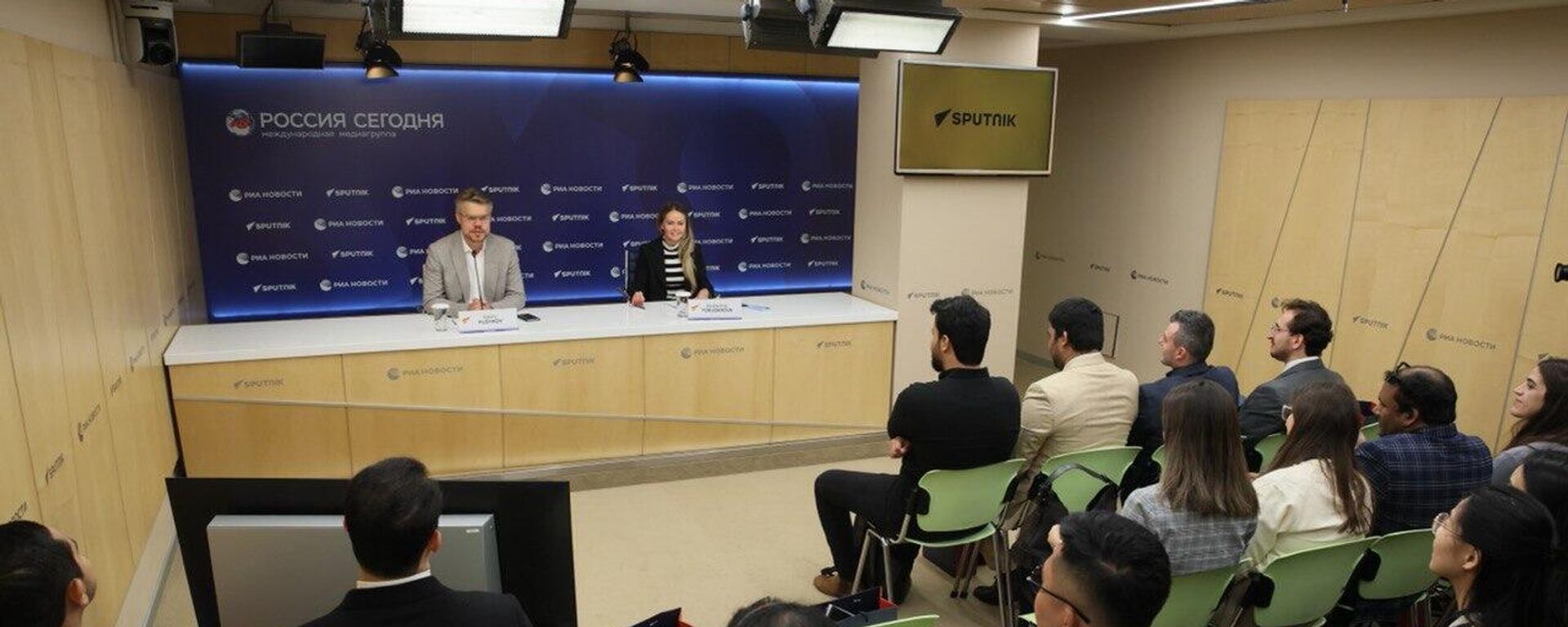https://sputnikglobe.com/20231103/sputnik-rt-cornerstones-of-russias-soft-power-in-latin-america---research-1114689141.html
Sputnik, RT Cornerstones of Russia’s Soft Power in Latin America - Research
Sputnik, RT Cornerstones of Russia’s Soft Power in Latin America - Research
Sputnik International
Earlier US-based Institute of Peace said that Sputnik and RT, owned by the Rossiya Segodnya international media group gained high credibility in Latin America by alternatives to the mainstream Western media.
2023-11-03T11:13+0000
2023-11-03T11:13+0000
2023-11-03T11:13+0000
world
sputnik
rossiya segodnya
freedom of speech
media
rt
mass media
https://cdn1.img.sputnikglobe.com/img/07e7/04/14/1109697067_0:221:816:680_1920x0_80_0_0_e594f1abb8ed8e6c68ff5b8162b228e7.jpg
Recent research has revealed that Sputnik and RT engage with opinion leaders and actively participate in the social media landscape. By doing so, these news outlets convey Russian perspectives on global politics to the receptive Latin American audiences.Sputnik, especially its Spanish edition - Sputnik Mundo, is very popular in Latin America and the local audience supports its concept of the Global South as the locomotive of a new world order based on stability and progress.Sputnik's primary goal is to share Russia's stance on the global political agenda and to explain to the Latin American audience that the collective West, and especially the US, bears partial responsibility for most of the regional problems.The research center emphasizes the significance of Russian media for Moscow's collaboration with Latin America, stating that it holds equal importance to the cooperation in military and political spheres.Elcano Royal Institute experts believe that Russian influence is especially strong in Cuba, Nicaragua and Venezuela, as well as Bolivia. In essence, in countries that have a rich history of standing against the neoliberal global system and resisting the influence of the United States.Russia also has strong ties with Brazil, Mexico and Argentina, although they are more cautious in their foreign policy. In contrast, countries such as Chile and Paraguay tend to diverge from Russia's approach to global issues and align themselves with the Western agenda.
https://sputnikglobe.com/20231025/sputnik-headquarters-launches-in-person-course-for-foreign-journalists--1114465820.html
Sputnik International
feedback@sputniknews.com
+74956456601
MIA „Rossiya Segodnya“
2023
Sputnik International
feedback@sputniknews.com
+74956456601
MIA „Rossiya Segodnya“
News
en_EN
Sputnik International
feedback@sputniknews.com
+74956456601
MIA „Rossiya Segodnya“
Sputnik International
feedback@sputniknews.com
+74956456601
MIA „Rossiya Segodnya“
sputnik, russian soft power, media, freedom of speech
sputnik, russian soft power, media, freedom of speech
Sputnik, RT Cornerstones of Russia’s Soft Power in Latin America - Research
These two Russian media are the two pillars of Russia's presence in Latin America, along with military-political cooperation with partner states in the region, according to research by the Elcano Royal Institute, a leading Spanish research center.
Recent research has revealed that Sputnik and RT engage with opinion leaders and actively participate in the social media landscape. By doing so, these news outlets convey Russian perspectives on global politics to the receptive Latin American audiences.
Sputnik, especially its Spanish edition - Sputnik Mundo, is very popular in Latin America and the local audience supports its concept of the Global South as the locomotive of a new world order based on stability and progress.

25 October 2023, 07:07 GMT
Sputnik's primary goal is to share Russia's stance on the global political agenda and to explain to the Latin American audience that the collective West, and especially the US, bears partial responsibility for most of the regional problems.
The research center emphasizes the significance of Russian media for Moscow's collaboration with Latin America, stating that it holds equal importance to the cooperation in military and political spheres.
Elcano Royal Institute experts believe that
Russian influence is especially strong in Cuba, Nicaragua and Venezuela, as well as Bolivia. In essence, in countries that have a rich history of standing against the neoliberal global system and resisting the influence of the United States.
Russia also has strong ties with Brazil, Mexico and Argentina, although they are more cautious in their foreign policy. In contrast, countries such as Chile and Paraguay tend to diverge from Russia's approach to global issues and align themselves with the Western agenda.



